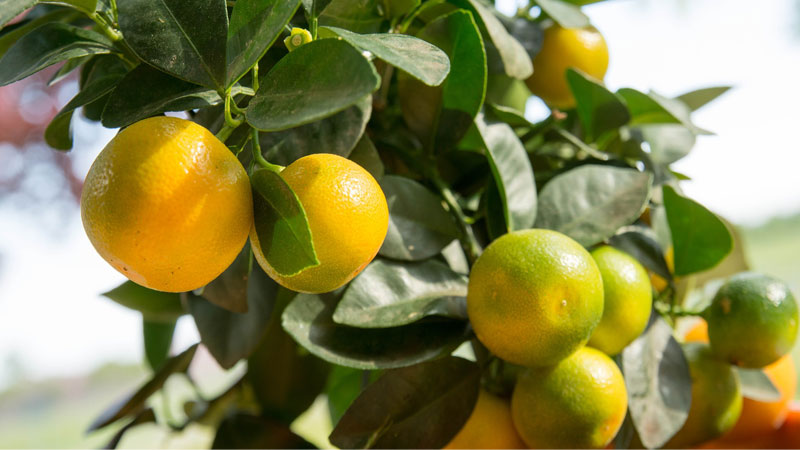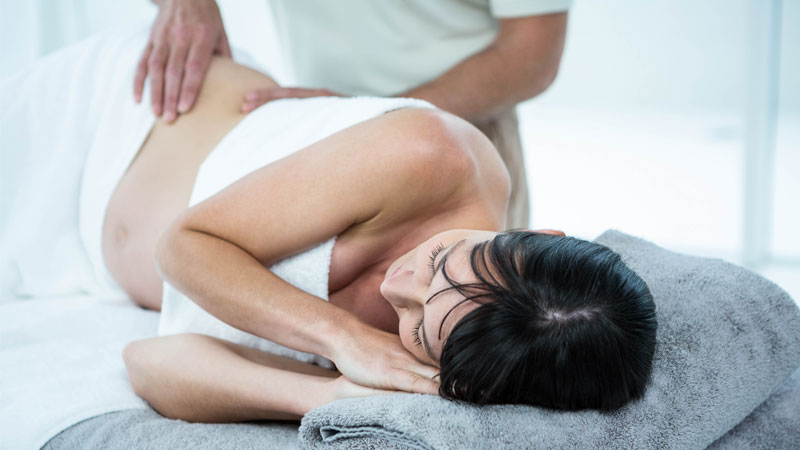One of the common things people ask me as an Aromatherapist is about how to use essential oils during pregnancy. It’s as if the human instinct to be as natural as possible with health care, kicks in the moment Mother Nature makes you a protector of a child; after all, your baby is the most precious miracle that ever happened, right? So, of course, it’s common to want to care for your health in the most natural and protective way possible. And, what better way than utilising holistic therapies to aid you through the biggest and most exciting change in your life!
It’s really important to get it right, however, so this article will advise you on how to use essential oils properly and safely through pregnancy
Number 1 Rule: Always check with your GP or Midwife
The first really important thing to remember is that, perhaps unlike conventional medical attempts, holistic healthcare is extremely individualised. This is really reinforced in my Homeopathy treatments, where there are over 3000 remedies that could suit an individual at one time and we have to find the ‘similimum’ – or closest match – to that person’s state at the time. We are all different; there is no ‘one size fits all’ approach to healthcare, and it’s the same with essential oils (though granted these are a bit easier to navigate than homeopathic remedies in that they can be used therapeutically – i.e. use ‘XYZ’ to ‘relax’ – as opposed to having to work out exactly the best remedy for that individual circumstance).
So, whilst it may be a lot easier to select an individualised essential oil – as well as an extremely intuitive process via your sense of smell – it is important to know how to use the oils safely during pregnancy in accordance with your individual needs; and to know which ones are likely to help you – and when! There are certain oils that have strong uterine action, for example, which are EXTREMELY helpful when you have gone past your due date and you want to encourage baby out – providing you have no contra-indications – i.e. things that will prevent or restrict you using the oils (hence checking with the GP first) – but you wouldn’t want to use these oils in the early stages of pregnancy, as you don’t want the same effect. Likewise, it’s important to just check that the essential oils won’t interfere with any medications you are on or other medical conditions. So, with this article, always follow Rule Number 1: check with your GP or midwife (and Aromatherapist) first!
But, don’t be scared; we’re here with some simple tips to help you ease into it – if you want to be a bit more adventurous, all you have to do is research and seek the advice of a qualified Aromatherapist.
The tips below are based on an average, straightforward and uncomplicated pregnancy…
Early Pregnancy: Keep it simple with Mandarin and Rosewood
Typically, to keep it simple, it is best to avoid direct application of any essential oils to the skin during the first 12-14 weeks of pregnancy, which is more about being safe. In particular, we avoid any stimulating oils which will affect the uterus or hormones, so avoid favourites that you might think are a good idea like Rosemary, Lavender, Geranium, Rose and Jasmine.

Generally, the advice for ‘early on’ – and I was trained by a lovely midwife who has really researched essential oils through her career – is to stick to the ‘safest’ pregnancy essential oils – Mandarin (Red) and Rosewood – in the early stages, and only diffusing these in short bursts of 10 minutes at a time – try 2-3 drops of each essential oil in a candle burner or aromatherapy diffuser. These oils, in particular, can be very relaxing – they’re like a hug in a bottle – and great for things like morning sickness and digestive disturbance. Remember, though, if you don”t like the smell of the oil, don’t use it, as it’s not what your body craves! For more detailed advice about early pregnancy, contact a local pregnancy trained Aromatherapist, as there are many more oils that may be suitable depending on your individual circumstances.
Blends for After 12-14 Weeks: Oils for common pregnancy challenges
After the ‘crucial’ timeframe there are a few more essential oils to try, and here are some blend guidelines – again, assuming that you have confirmed with the GP/Midwife and have no complications. Always remember to dilute the oils according to the instructions, and ease yourself in – maybe try diffusing the oils first!
Pregnancy Blend #1 – Stress
If you’re feeling stressed, try essential oils to calm you. Sandalwood and Valerian Root are great oils to relax with so you could add either of these into your Mandarin and Rosewood blend and massage it into an area of tension. Try 1 drop each of up to 3 oils in 15ml of Grapeseed oil – massage onto the neck and shoulder area gently so you can continue to breathe the oils in. After 20 weeks you can try substituting some of these oils with Chamomile, Sweet Marjoram and Lavender, to mix it up a bit!
Pregnancy Blend #2 – Insomnia
For insomnia, definitely try a warm bath before bed – You can add Mandarin and Ylang Ylang (and maybe the Valerian Root if you’ve not already used it in your massage blend). Add 1 drop of each into 15ml of Base Formula’s SLS Free Bath & Shower Gel or Bath Oil (take care with the Bath Oil as it may leave the bath surfaces slightly slippery). Lie back and do some nice, deep breathing and let your mind tune into observing any thoughts and fears. Remember, all will be OK – you have all you need within you to cope! Let the essential oils work their magic.

Pregnancy Blend #3 – Constipation
A common issue in pregnancy is constipation. Try adding 1 drop of Sweet Orange and 1 drop of Grapefruit to 10ml Grapeseed oil and very gently massage round the abdomen in a clockwise direction. This should help.
Pregnancy Blend #4 – Indigestion
If you’re struggling with indigestion, which can be common during pregnancy, try massaging a blend of 1 drop Petitgrain and 1 drop Red Mandarin in 15ml of Grapeseed oil into the affected area of the chest as required. After 20 weeks you could also try adding in 1 drop of Roman Chamomile!
Pregnancy Blend #5 – Stretchmarks
As the skin stretches, many mums-to-be worry about stretchmarks. Try using a blend of 10ml Coconut oil with 2 drops Mandarin to help keep the skin supple. After 20 weeks, try adding Lavender instead as this will likely be the best oil for this – but introduce it gradually and don’t overdo it.
Aromatherapy for labour
Finally, you get to the all-important ‘birth’ stage, from 37-42 weeks! Essential oils that can help at this stage will depend upon your birthing plan (the drugs used) and how it evolves. It’s such an exciting time and the more excited you get, the better your body will be able to provide the right hormones to do the job! So, here are some blends for the key issues of birth! Though, remember – it’s all going to be absolutely wonderful no matter how the birth happens.
Birth Blend #1 – Anxiety
When labour commences, try a nice calming, warm bath using 15ml of SLS Free Bath & Shower Gel or Bath Oil (see note above) with 1-2 drops each of Clary Sage and Frankincense (providing you’re not using other analgesics). This should help prevent panic and aid the body to do its job naturally.
Birth Blend #2 – Labour Massage
Why not get hubby to massage you – this is particularly great for the lower back! Create a massage blend before you go with 15ml Grapeseed oil and 1-2 drops of Lavender and Roman Chamomile. You might substitute in Jasmine or Clary Sage also – see our next tip!

Birth Blend #3 – Aiding Natural Labour
Until natural labour, you would avoid these oils, but after 38 weeks you’re good to go with oils like Jasmine and Clary Sage – as long as you are not using them alongside analgesics like pethidine and epidural or oxytocin and pitocin infusions. For natural births, they can really help accelerate and assist labour by encouraging endorphin release and aiding uterine contractions. Exciting times!
Beyond birth
You might think that it all returns to ‘normal’ use of essential oils after you’ve given birth. There are loads of essential oils that can help you bounce back, though remember that whatever you put into your bloodstream can still affect baby if you are breast feeding. In particular, the BEST essential oil for post-birth is Lavender, as it is a great analgesic, antiseptic and helps ease bruising, as well as being very calming. Likewise, you might consider using a pulse point rollete of 10ml Grapeseed oil with 1 drop of Geranium and one drop Jasmine for hormone balance and promoting milk production, or 2 drops of Tea Tree in water to soak to soothe sore, cracked nipples after nursing.
Enjoy essential oils during pregnancy
Whilst it can seem a bit of a minefield to know what’s what, hopefully these simple tips have broken it down for you so that you can at least try a few options, if given the OK from your specialist. It’s not so terrifying when you know which oils are safe to try – and don’t forget you can always seek advice! It’s great to go for the natural route of using essential oils (even if it’s just for relaxation) during pregnancy, and hopefully that will stand you in good stead to seek more natural alternatives for baby once they are finally here!
So, essential oils all the way! Congratulations on your journey and enjoy every minute, no matter what happens.
Nicole Barton
Consultant Aromatherapist
Disclaimer & Safety Advice
Read other articles by Nicole Barton

